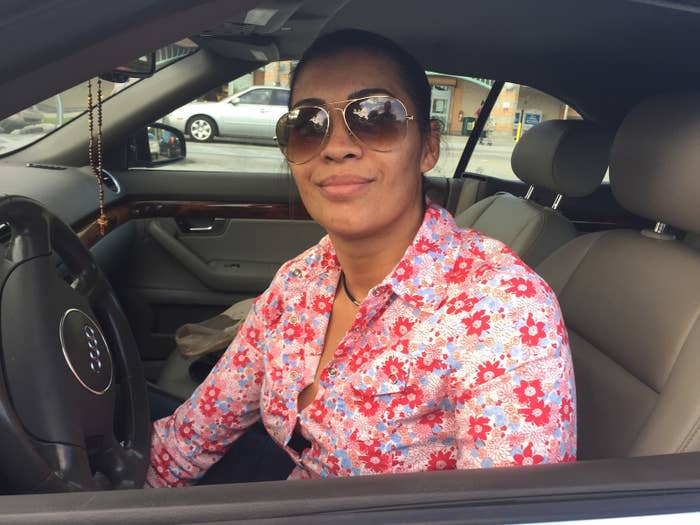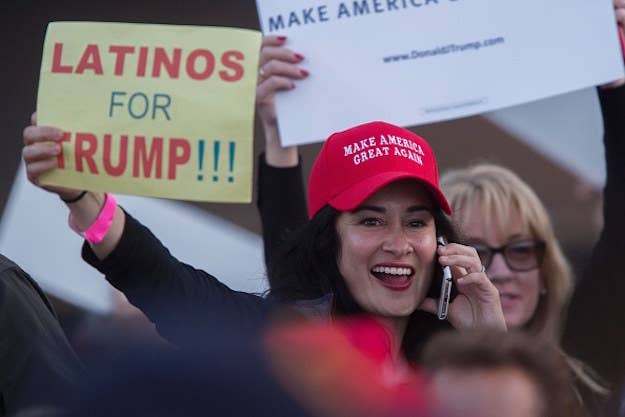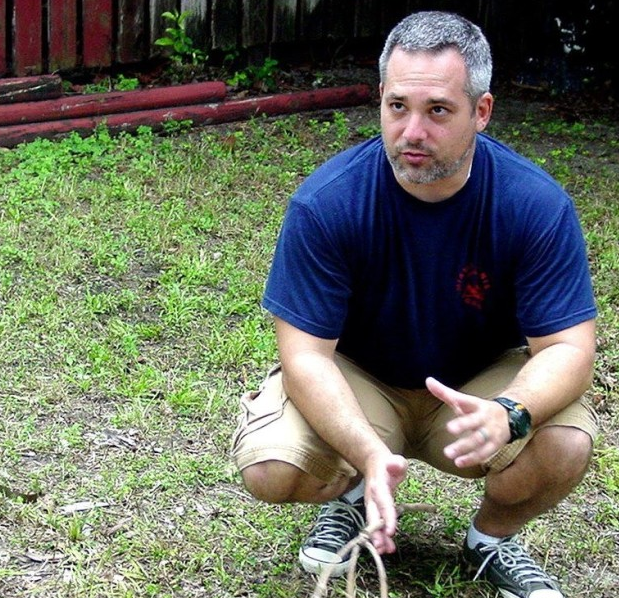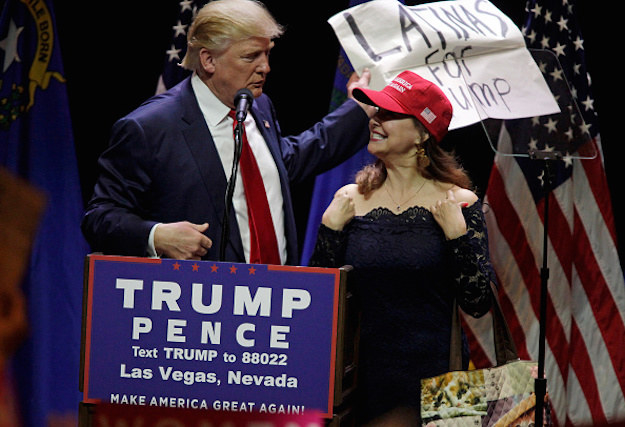
Hialeah, FLORIDA — Yose Chiquillo is still in shock that Donald Trump won the presidency.
"I didn't think he was going to win," she told BuzzFeed News as she sat in her Audi on the way home from a grocery store in Hialeah, Miami. "I don't like when he's insulting, but I like that he is honest and says what he thinks in the moment."
Chiquillo, a 44-year-old Venezuelan immigrant who has lived in the US for 21 years, voted for Trump on Tuesday in part out of frustration with how the Clinton administration handled immigration in the 1990s.
"They made life really hard for Latinos," she said, noting Clinton's deal that would send Cuban migrants caught at sea back to the island while granting citizenship to millions of undocumented immigrants in the US. "It was hard, really hard."
Chiquillo's dismay with the Democratic Party and Hillary Clinton, who she said "deceived" voters by deleting her emails, may explain in part how Trump, who has called Mexicans "rapists" and said an "overwhelming amount of violent crime in our major cities is committed by blacks and Hispanics," earned such a high percentage of the Latino vote in Florida compared to Mitt Romney in 2012.
Early predictions showed that Clinton would take the state as a record number of Latinos took to the polls. But the actual Latino voter turnout shows that Trump was stronger competition for those votes than expected.
While 65% of Latinos voted for Clinton, 29% voted for Trump, a high margin compared to the 2012 elections, according to CNN exit polls. Obama won 71% of the Latino vote in 2012, while Romney got 27%.
This twist of events caught many analysts by surprise, prompting some to ask, "What makes these people tick?"

A.J. Delgado, a Florida native and Trump adviser, told Breitbart News that Trump's anti-corruption message put the state "in the bag."
"I think the theme of corruption, when we look at Hillary Clinton, is one that speaks very powerfully and really resonates with Latinos in particular, especially first-generation immigrants who have become citizens and now vote, because that’s exactly what we fled," she said. "Whether it’s communism in Cuba, Maduro in Venezuela, Puerto Ricans, whatever. By the way, Puerto Ricans aren’t immigrants, but still, leaving their homeland, as it were. It resonates across the board."

Antonio Torres, a 44-year-old Cuban Republican in Miami, told BuzzFeed News that his parents' experiences as immigrants fleeing the repression of Fidel Castro's dictatorship has shaped his political views, and made him especially in favor of Trump.
"A smaller government always represents more personal freedom," said Torres, who runs the survival training company Urban SurvivalCraft. "Large government oversight eventually leads to large-scale abuses and inefficiencies. That’s the way I’ve seen it."
About 68% of Miami-Dade County is Latino and although many are Cuban, there is a growing number of people from Central and South America, areas that have been ravaged by political unrest and economic instability.
Torres believes Florida's Latinos came out in support of Trump because after eight years of Obama they see the country going in a direction that reflects the "socialist programs run amuck" in their native homelands.
"They saw too much government, not enough accountability, loss of control of people themselves, and it was a recipe for disaster," he said. "I think Latino voters are a big voice in the United States ... I think that they want to come here and they want to live as Americans and they want to enjoy the benefits of being an American."

The trauma of surviving a dictatorship has ripple effects in a family that touch even younger generations who have never lived under such conditions.
Irene, 24, and Aaron, 29, are a married couple with a 6-month-old baby whose parents both immigrated from Cuba in 1969. (They declined to give BuzzFeed News their last names.)
The couple grew up hearing each of their grandparents tell stories about repression in Cuba under Castro. Irene's grandfather worked as a truck driver delivering meats and other groceries. Food was tightly rationed, so he'd hide extra meat in his home to share with neighbors.
"Because of my Cuban background, I'm less inclined to more socialist ideas because of my upbringing," said Irene, who is a teacher. "Hearing talk about 'Let's tax the rich and give it to the poor' — obviously no one doesn't want to help the poor, but that approach is less appealing to someone from my background."

